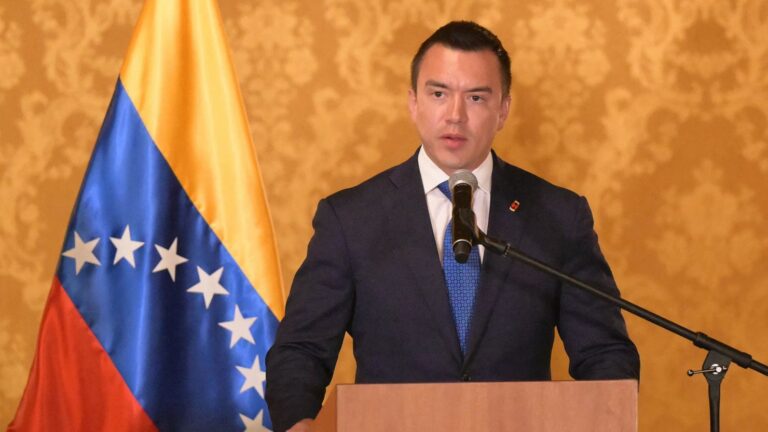🎧 Listen to This Article
QUITO – Ecuador’s President Daniel Noboa announced a series of bold policy shifts, including a 27% tariff on Mexican imports and a temporary closure of the country’s borders, following increasing instability attributed to armed groups. These actions, which mirror the hardline stances of U.S. President Donald Trump, come just days before Ecuador’s upcoming re-election.
With his re-election campaign heating up, President Daniel Noboa has taken a firm stance on national security and economic protectionism, policies that have resonated with his conservative base. By imposing a 27% tariff on goods from Mexico, Noboa aims to safeguard Ecuador’s local industries and curb the influence of foreign imports on domestic markets. The tariff marks a dramatic shift in Ecuador’s trade relations with its neighbor, Mexico, and signals the president’s readiness to adopt more protectionist measures ahead of the tight 2025 elections.
Simultaneously, Noboa’s decision to militarise Ecuador’s ports and seal the country’s borders reflects mounting fears over security, especially as armed groups have been blamed for destabilising local areas. The president’s aggressive approach mirrors former U.S. President Donald Trump’s border-centric policies, echoing similar rhetoric and strategies aimed at strengthening national security.
Economic & Compliance Impact on Businesses & Trade
The imposition of a 27% tariff on Mexican imports is likely to impact businesses reliant on trade between the two countries. While it serves as a move to bolster Ecuador’s local manufacturing and industries, the tariff could increase costs for businesses importing goods from Mexico. Companies may face higher operational costs, which could eventually be passed on to consumers in the form of increased prices. The move could also strain Ecuador’s relationship with Mexico, complicating cross-border trade and potentially leading to retaliatory measures.
“This decision is a clear signal that President Noboa is aligning with protectionist economic policies seen in other parts of the world, such as in the U.S. under President Trump,” said Mariana Valdez, an economic analyst based in Quito. “While the tariffs may provide short-term relief to Ecuadorian producers, the long-term implications for cross-border relationships and trade deals could be far-reaching.”
On the security front, Noboa’s actions to militarise ports and close borders have drawn mixed reactions. Human rights groups and political opponents have expressed concerns over the potential for heightened security crackdowns that could disproportionately affect local communities and lead to border tensions.
With Noboa’s re-election campaign underway, the next few weeks will be crucial in gauging how these policies are received by the electorate. His hardline stance on border security and tariffs is likely to continue playing a central role in his political strategy as he faces his opponent, Luisa Gonzalez, in the upcoming election.
Beyond the immediate implications for trade, Noboa’s decisions could have lasting effects on Ecuador’s foreign relations and trade agreements, particularly with Mexico and other regional partners.
For further details, clarification, contributions, or any concerns regarding this article, please contact us at editorial@tax.news. We value your feedback and are committed to providing accurate and timely information. Please note that our privacy policy will handle all inquiries



